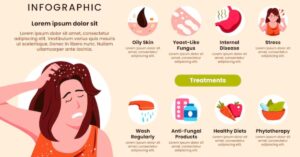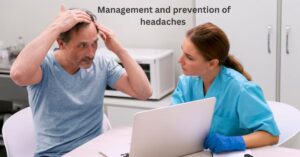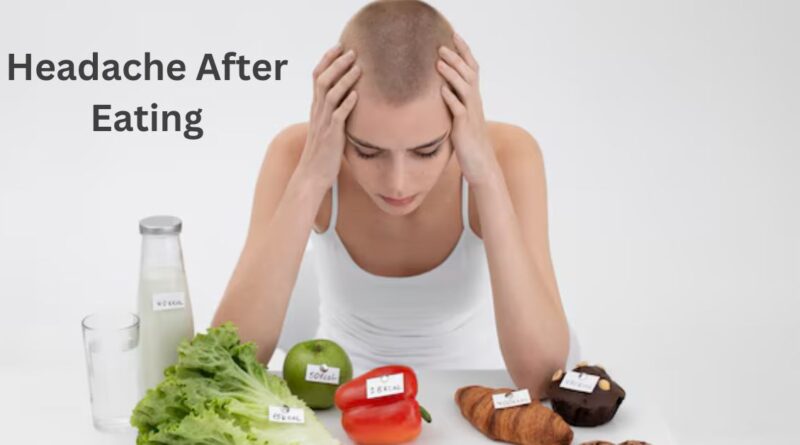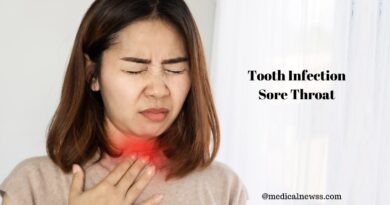Headache After Eating
Gide line
Headache after eating can be caused by food allergies, dehydration, low blood sugar, or compounds like tyramine and MSG. Some of the most common culprits are aged cheese, processed meats, chocolate, caffeinated beverages, and alcohol. Remedies include: staying hydrated.
Introduction
Have you ever been hit by an ugly headache after eating? It irritates a person to sit and share a meal but soon faces a headache. This is more common than the person would be able to imagine, and there are several reasons why this happens. Understanding the cause of such headaches can help to avoid them; one can have his/her meal without the experience of pain or at least prevent the fear of the pain while eating. Let’s dive into what might be the reason behind this problem and how you can overcome it.
What causes headaches after eating?

Headaches after eating can be caused by many different factors, from what you eat to how your body reacts. Some common causes include a fall or rise in blood sugar that can be induced from eating large amounts of refined carbs or sugary foods. Food intolerances or allergies may also act as triggers. In addition, sometimes dehydration during or following the period of eating can worsen the problem.
“It is possible to recognize the causes of headaches after eating and using a headache chart.”
Key Takeaways:
- Blood sugar levels might lead to headaches.
- It may be caused by food intolerance or allergy.
- Dehydration could also trigger or exacerbate the symptoms.
Common Foods That Induce Migraines
Certain foods trigger more headaches than others. Some processed foods, like deli meats and canned soups containing preservatives in the form of nitrates, trigger or intensify headaches. Headaches are caused by foods that contain a lot of sugar and artificial sweeteners like aspartame. Additionally, meals high in histamine, including those found in fermented foods and aged cheeses, trigger more headaches.
Key Takeaways:
- Processed foods with preservatives stimulate headaches.
- The main complaints include sugary food and artificial sweeteners.
- Those who consume aged cheese and fermented foods complain of headaches.
Blood sugar imbalance and headaches
Heads for many people have, in turn, been caused by rapid spikes or drops in blood sugar following meals. Other factors that cause it include when you consume white bread and sugary snacks, among other high-glucose meals. Since it initially raises your blood sugar levels, after a certain number of hours, the blood sugar crashes, thus causing headaches. People with diabetes are quite sensitive, as their ability to maintain regulation of blood sugar shows them to be safe from such headaches.
Key Points
- Carb-rich foods can give rise to surges and drops in blood sugar.
- Control of blood sugar is important for preventing headaches.
- Diabetic patients need to keep track of their sugar levels.
Role of Dehydration After Eating

Dehydration contributes to major headache pain, especially after eating. Most people eat but forget to drink water; hence, they suffer from a mild state of dehydration that leads to headaches. Other foods like salty and spicy dishes will increase the body’s needs for water, and thus, after eating them, dehydration will easily strike.
Key Points
- Lack of water when one is taking his or her meal can cause headaches.
- Salty or spicy foods increase dehydration risk.
- That is, drinking enough water prevents post-meal headaches.
Might It Be Food Intolerance?
Food intolerance, like lactose intolerance or gluten sensitivity, can also cause headaches after consuming food. The body reacts with symptoms including bloating, stomach ache, or headache when it cannot digest the food. Ensure you discover and avoid your trigger foods to prevent such headaches.
Key Points
- Food intolerance causes headaches after eating.
- Lactose and gluten are the most notorious culprits.
- Avoiding trigger foods can help avert headaches.
Is It a Food-Induced Migraine?
For those suffering from migraine attacks, some types of food can be trigger factors. In fact, caffeine, chocolate, and alcohol are known trigger factors for migraines. Skipping meals or fasting is also another common trigger factor that leads to migraines. Observing these trigger factors and making an adjustment in diet habits can help reduce the cases of food-induced migraines.
Key Points:
- Some foods become a cause of migraine attacks.
- Common triggers include alcohol, chocolate, and caffeine.
- Even missed meals can trigger migraines.
How Food Sensitivity Compares to Food Allergies

A food allergy and food sensitivity are very often confused because they cause the body in different ways. A food allergy causes immediate responses that the immune system reacts to. In contrast, food sensitivity is not as serious but leads to headaches in people. It may be when people are hiding from their offenders that they find out that it is a case of food sensitivities causing them headaches.
Key Takeaway
- Food sensitivities are not a direct immune response but lead to headaches in people.
- The symptoms might not be instant, but they are painful nonetheless.
- Avoiding trigger foods can ease headaches.
Caffeine and headaches, triggered by post-meal eating
While caffeine is already known to help ease headaches for some, it could also be a triggering factor for others. Too much coffee or caffeinated beverages, especially when taken with food, can cause headaches. In some cases, too many coffees or caffeinated drinks may trigger headaches as the body becomes accustomed to the presence of caffeine.
Key Points:
- Consumption in excess may lead to headaches.
- Withdrawal from caffeine may also cause headaches.
- It could help to avoid headaches to consume caffeine in moderation.
Stress and Tension Headaches Due to Food Intake
Tension tends to help worsen headaches as well as those induced by the act of eating. If you are tense or anxious about the food already, this can increase the chances of getting a tension headache later on. Also, eating too hastily or chewing poorly also adds to stress in the digestive system, to which the headache is more likely.
Key Points:
- Stress acts to worsen headaches following meals.
- RPM: Headache can be caused, especially following the meal, because of fast eating.
- Headache can be prevented through relaxation at the time of having meals.
Management and prevention of headaches after having a meal

There are multi-level factors that can avoid a postprandial headache. Drinking enough fluids and eating properly and controlling the trigger foods can reduce the number of headaches. The differences that will make all the difference are keeping stress levels and food intolerances or allergies at bay. Those who frequently suffer a headache after eating may consider keeping a food journal to track the patterns and triggers.
Important Points
- Keep hydrated and eat well, and avoid headaches.
- AVOID KNOWN TRIGGER FOODS AND MANAGE THE LEVEL OF STRESS.
- A FOOD DIARY MAY GIVE AN INDICATION ABOUT HEADACHE PATTERNS.
Headache After Eating in Pregnancy
Pregnancy leads to various changes in the human body, and a headache after a meal is also one of the symptoms of pregnancy. Headache during pregnancy is mostly due to hormonal fluctuation, changes in blood sugar levels, and increased sensitivity of pregnant women towards certain food materials. Another well-documented fact is that pregnant women dry up quite easily, and this may cause headaches after having meals, particularly those foods with very high volumes that may induce thirst or sodium.
Key Points
- Imbalance of hormones during pregnancy causes headaches.
- Pregnancy symptoms include fluctuating blood sugar.
- Cause is dehydration stress or some food triggers headache.
Postprandial Headache with Diabetes
Diabetic patients can expose themselves to headaches after eating due to blood sugar level fluctuations. Once the blood sugar goes to either too high or too low, a headache would occur. A carbohydrate-rich meal or that cookie or candy would rush up the sugar in the blood, which caused that headache. It is very important that diabetic patients maintain their blood sugar levels so as not to suffer from a headache after a meal.
Important Points:
- Diabetic headache is caused either by very high or very low sugar levels in the blood.
- Problem meals may contain more carbs or sugar.
- A constant sugar level does not cause headaches.
Is sugar causing headaches?
Sugar is a big offender for headaches after it has been taken. Since it causes a blood sugar level to skyrocket and then crash, it can begin a headache cycle as well. Another reason is that humans using most artificial sweeteners in sugar-free food suffer from headaches.
Key points:
- Sugar easily causes a fast blood sugar elevation, leading to headaches.
- A sudden dip in blood sugar following a minor elevation could increase the thudding of the headache.
- Headaches are also brought about by artificial sweeteners that induce the symptoms of a headache.
Conclusion
Headaches are more common after eating, and further, they may be due to a number of reasons like dehydration, intolerance to food, or stress. This in turn guides you on how best to keep off the headache and take to dining with no pains. Observance on consumption and reaction to it will monitor headaches and thus healthy, comfortable lives.




